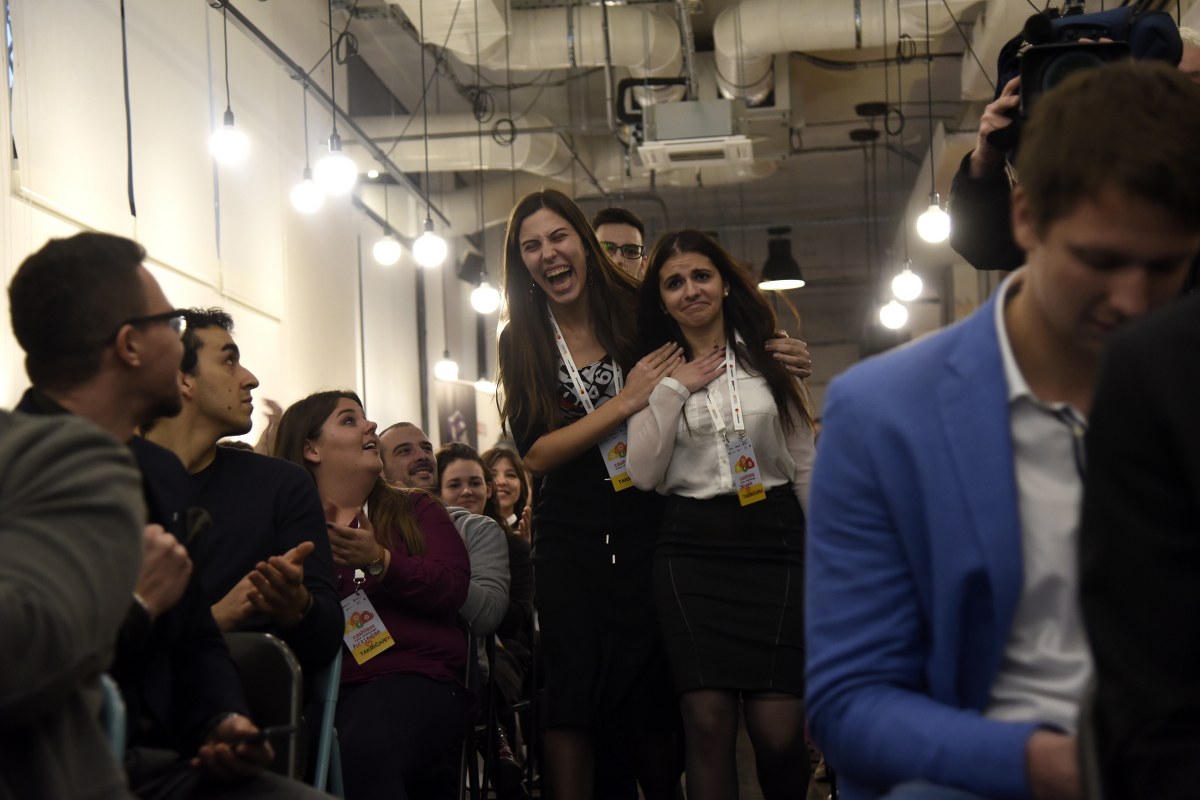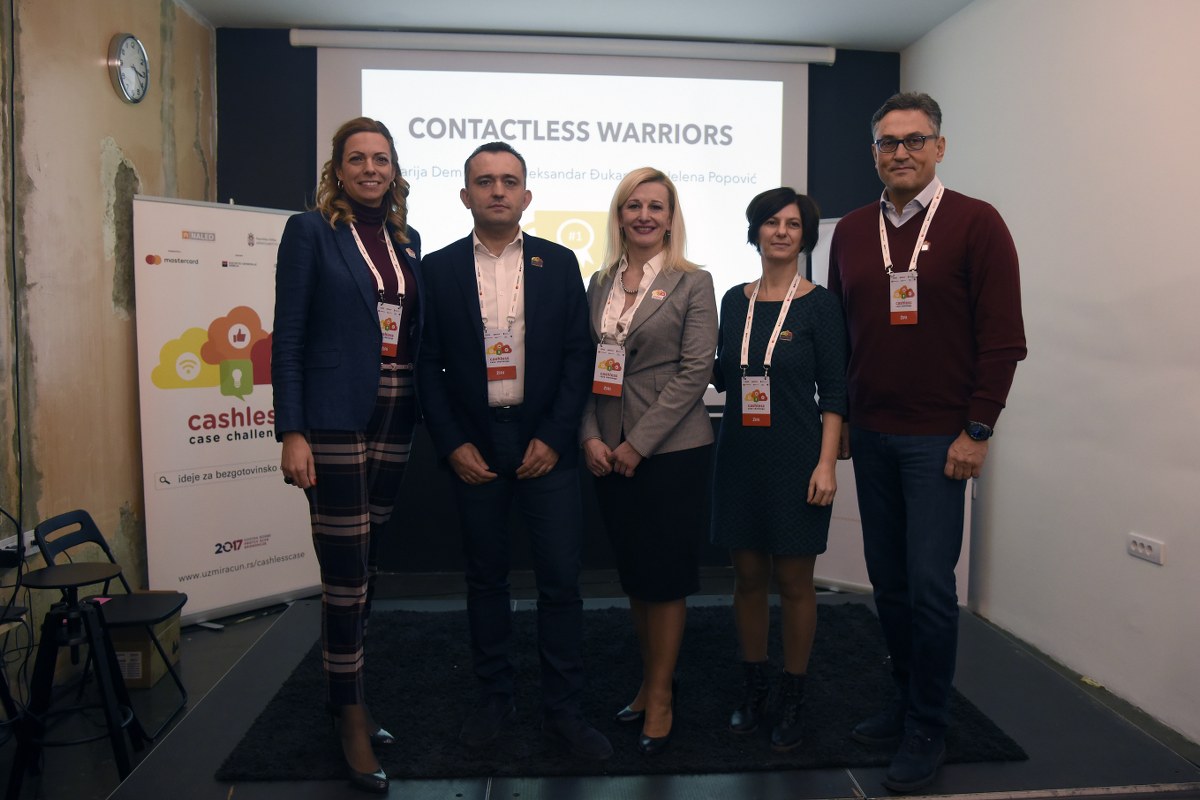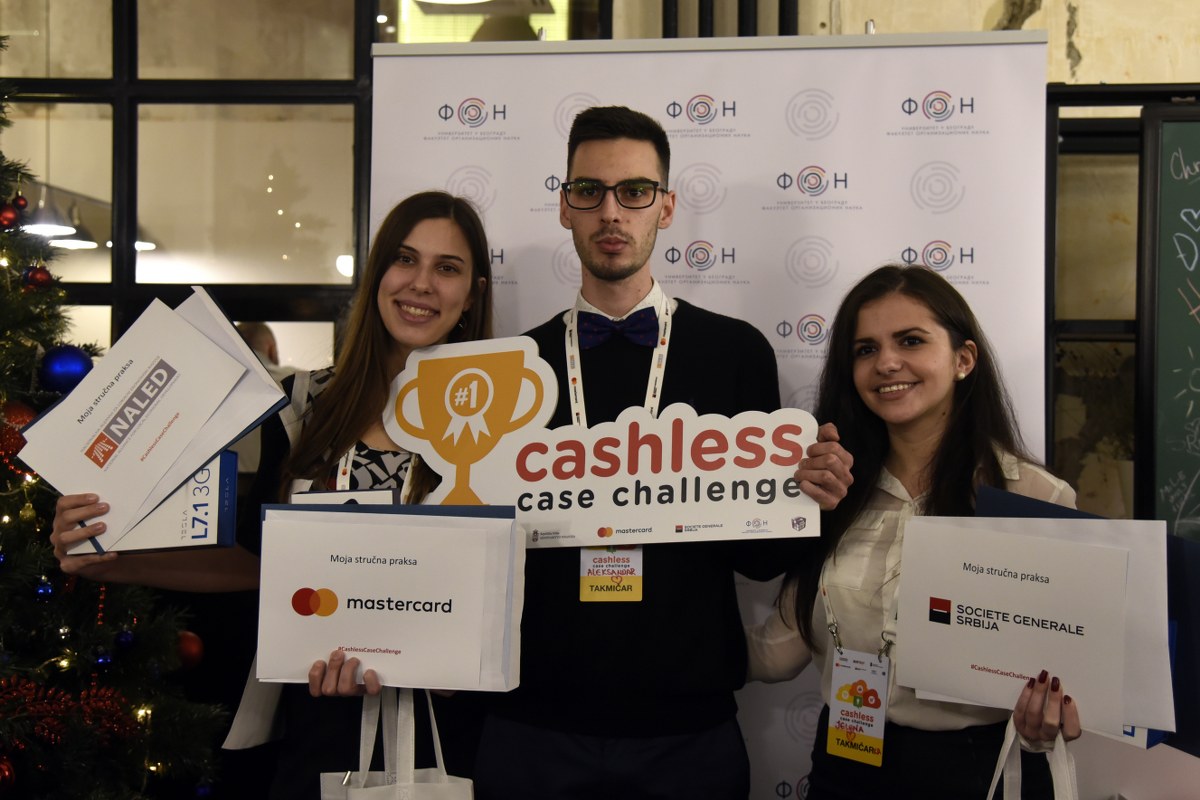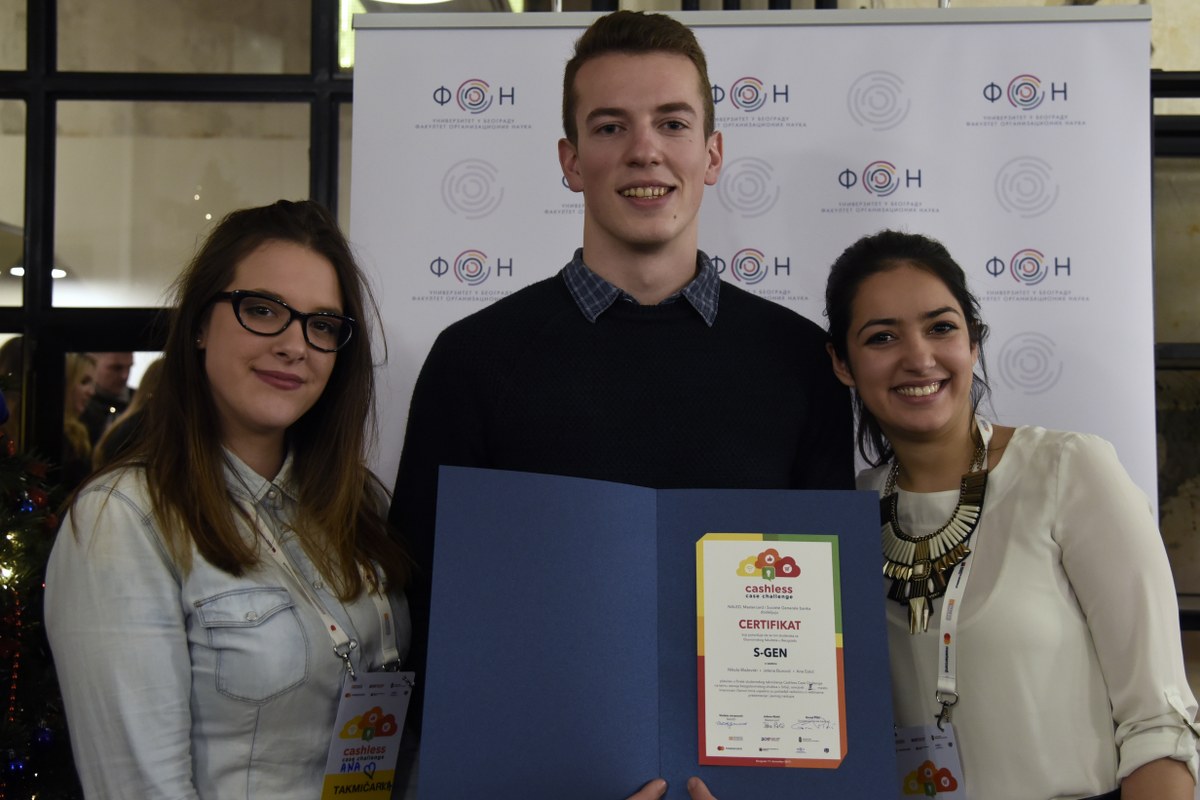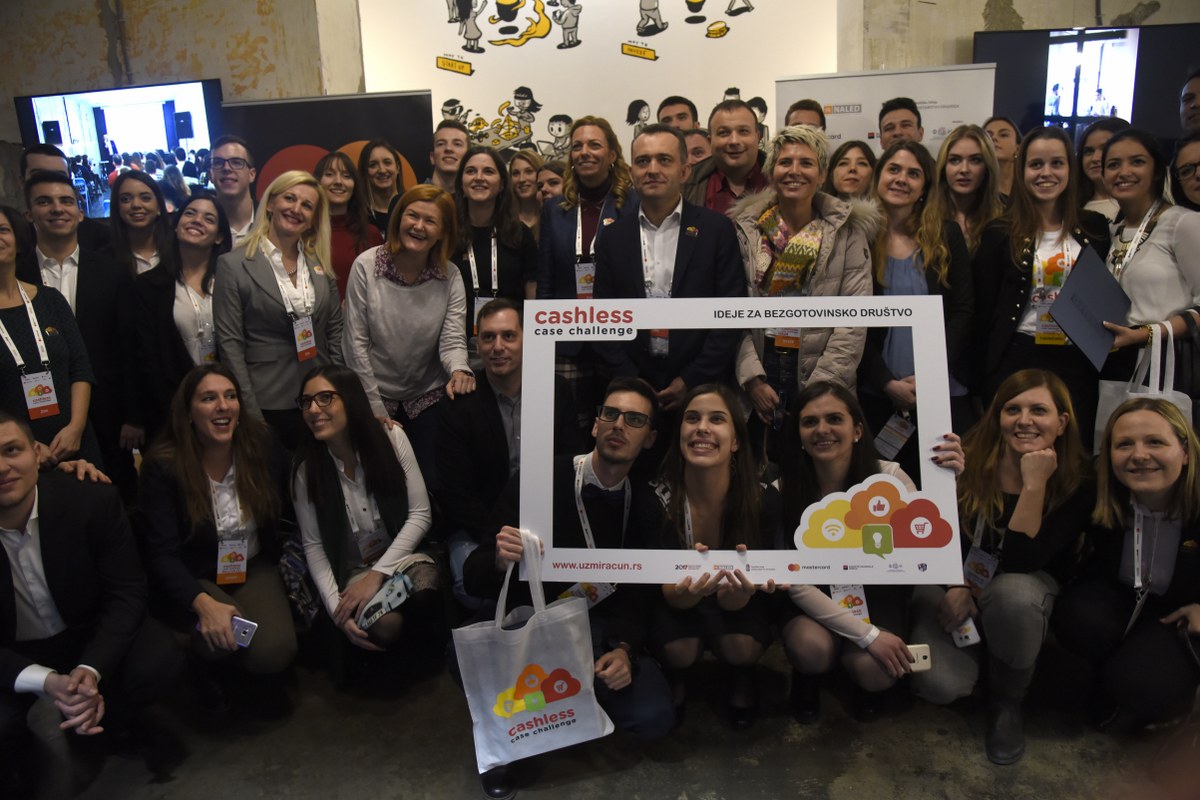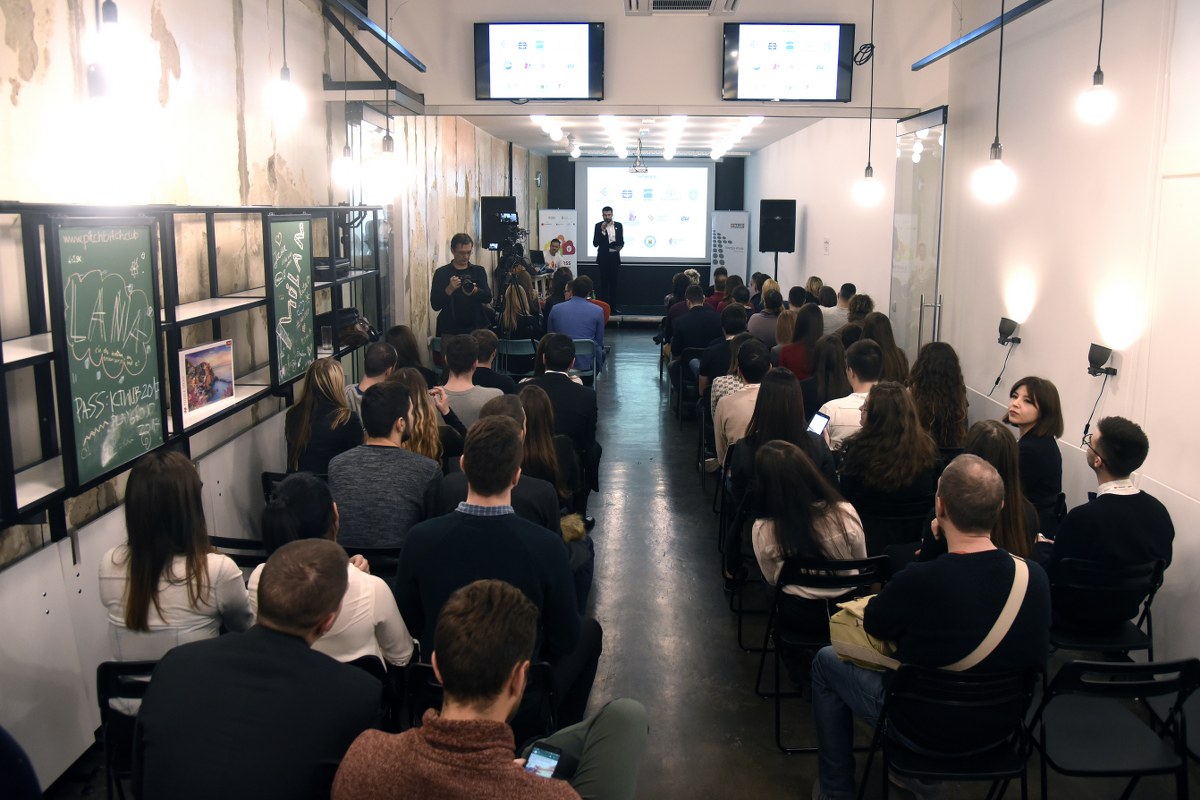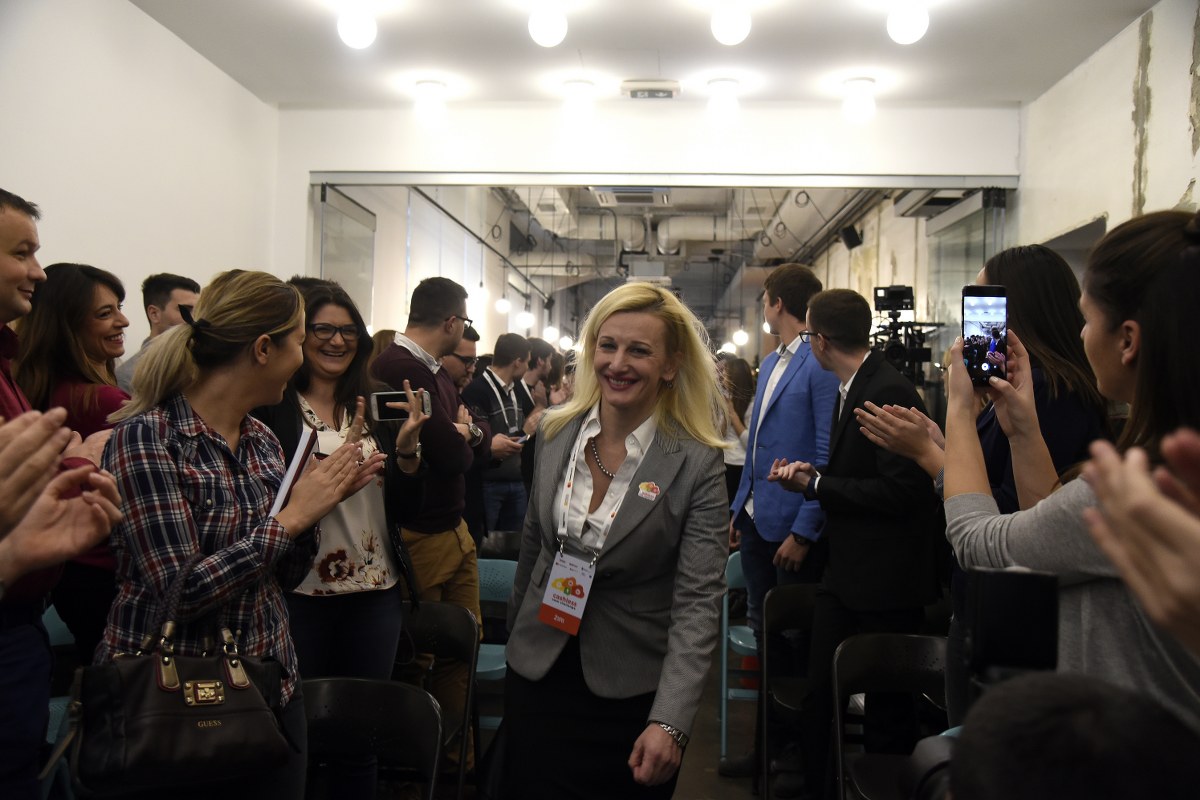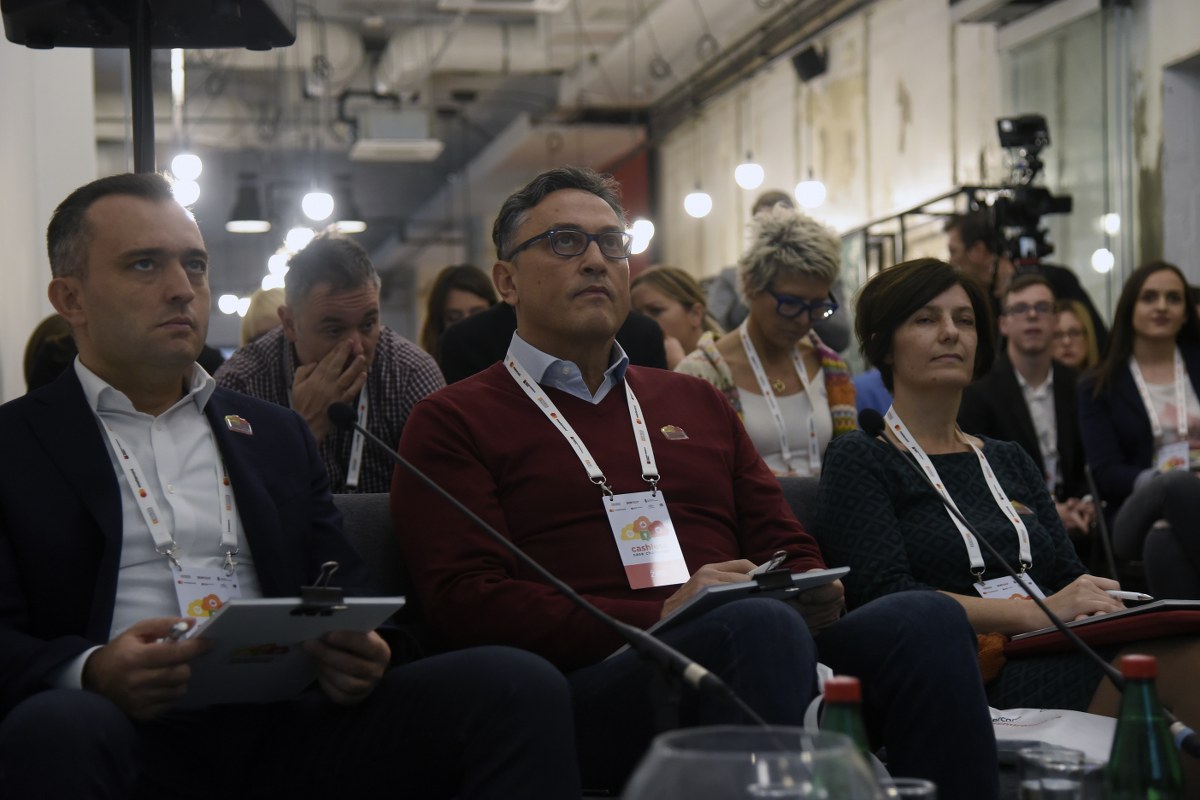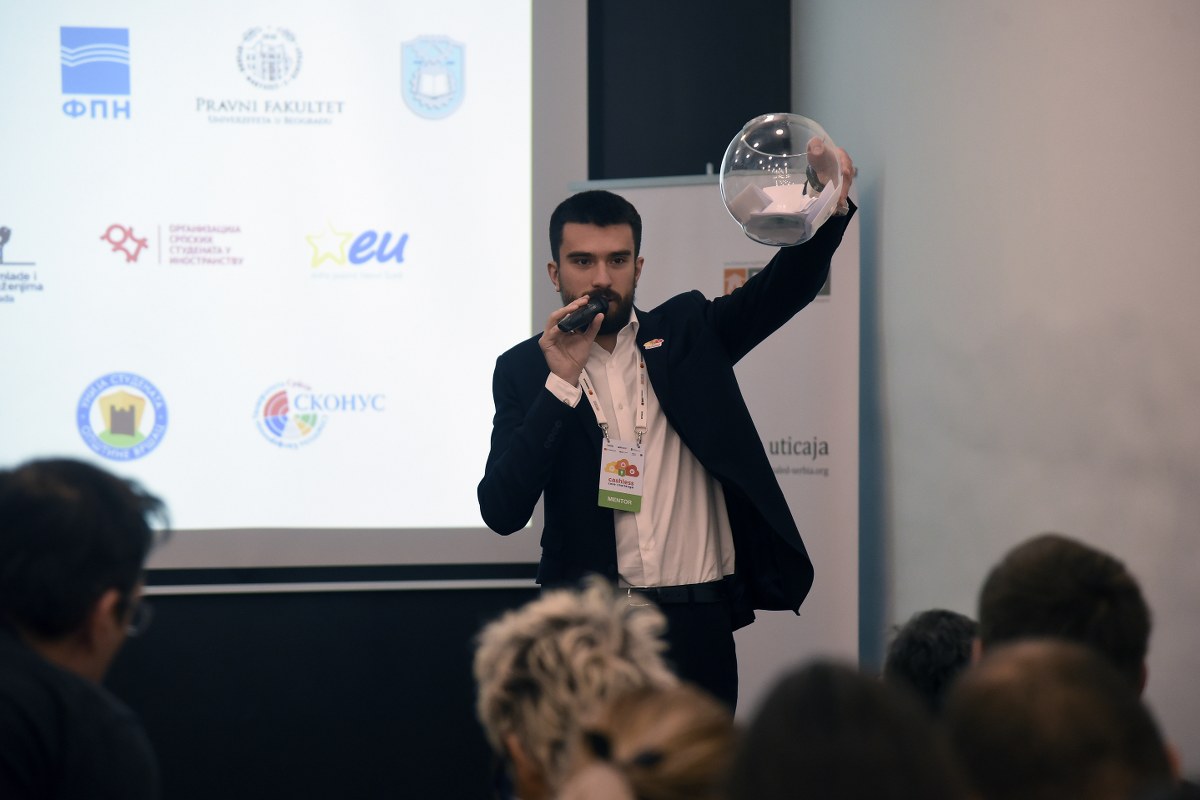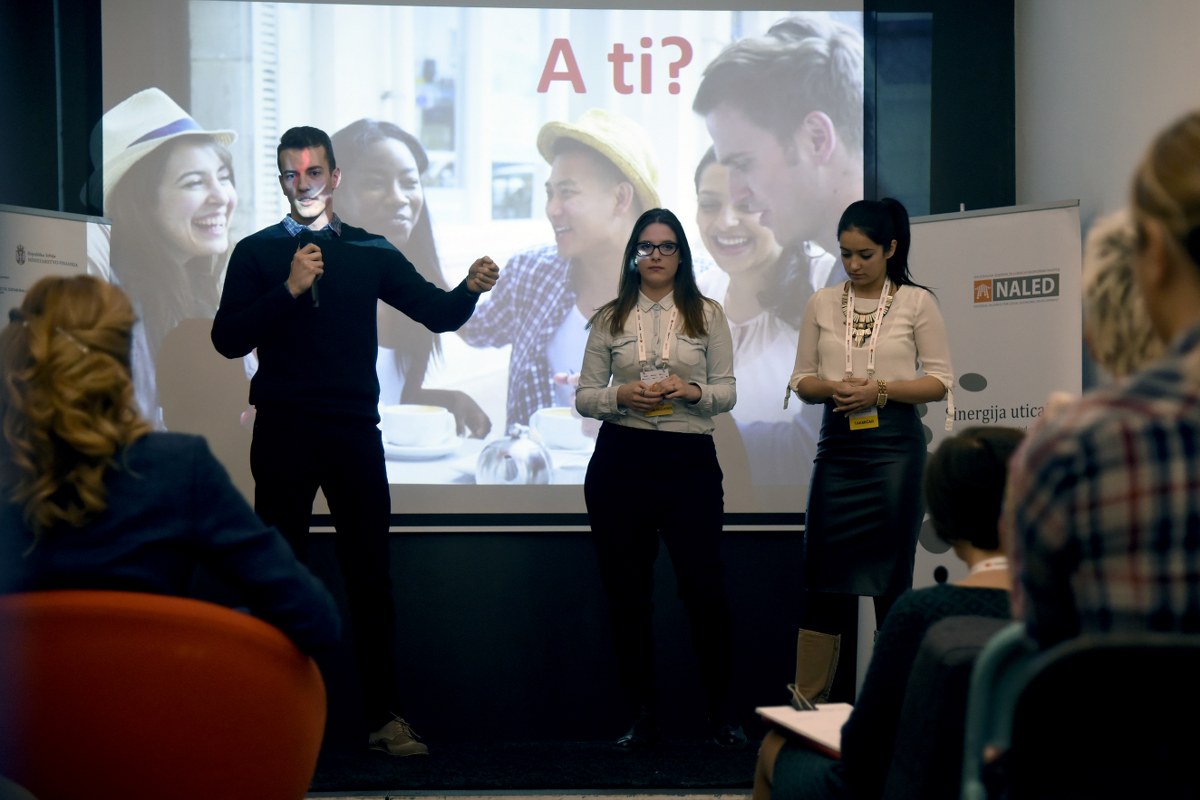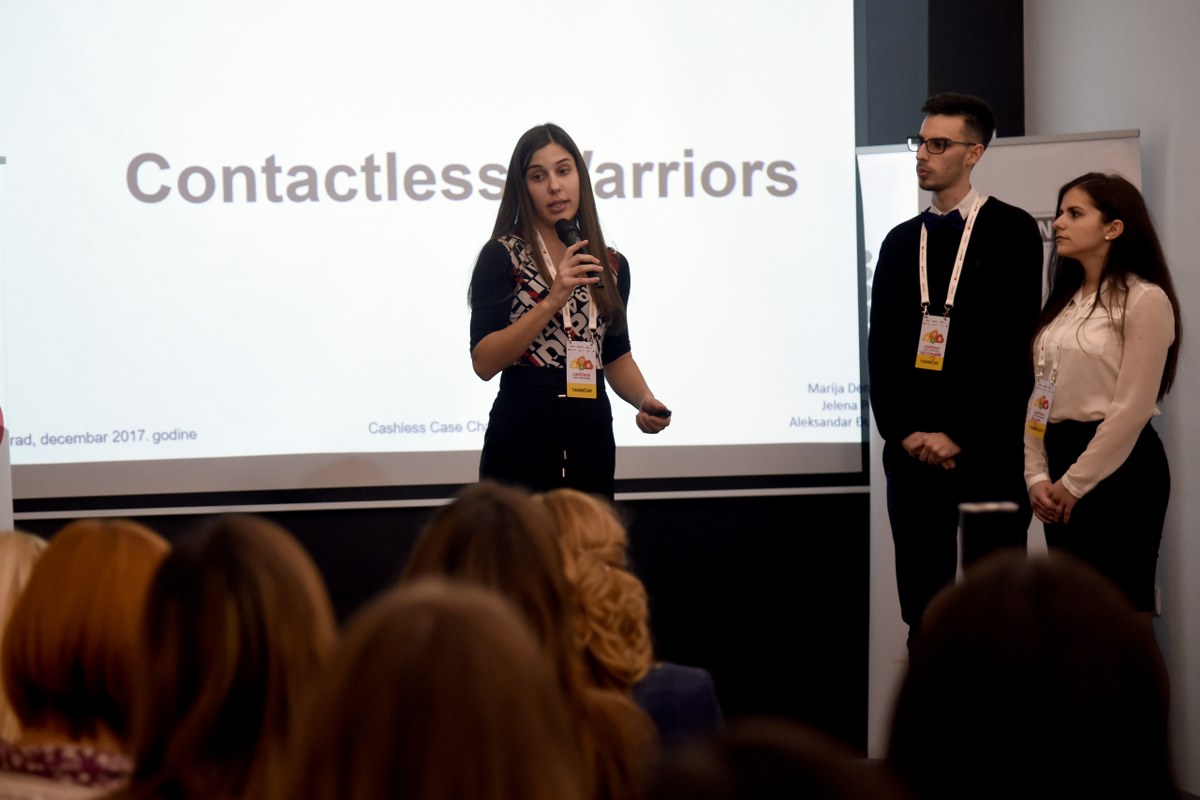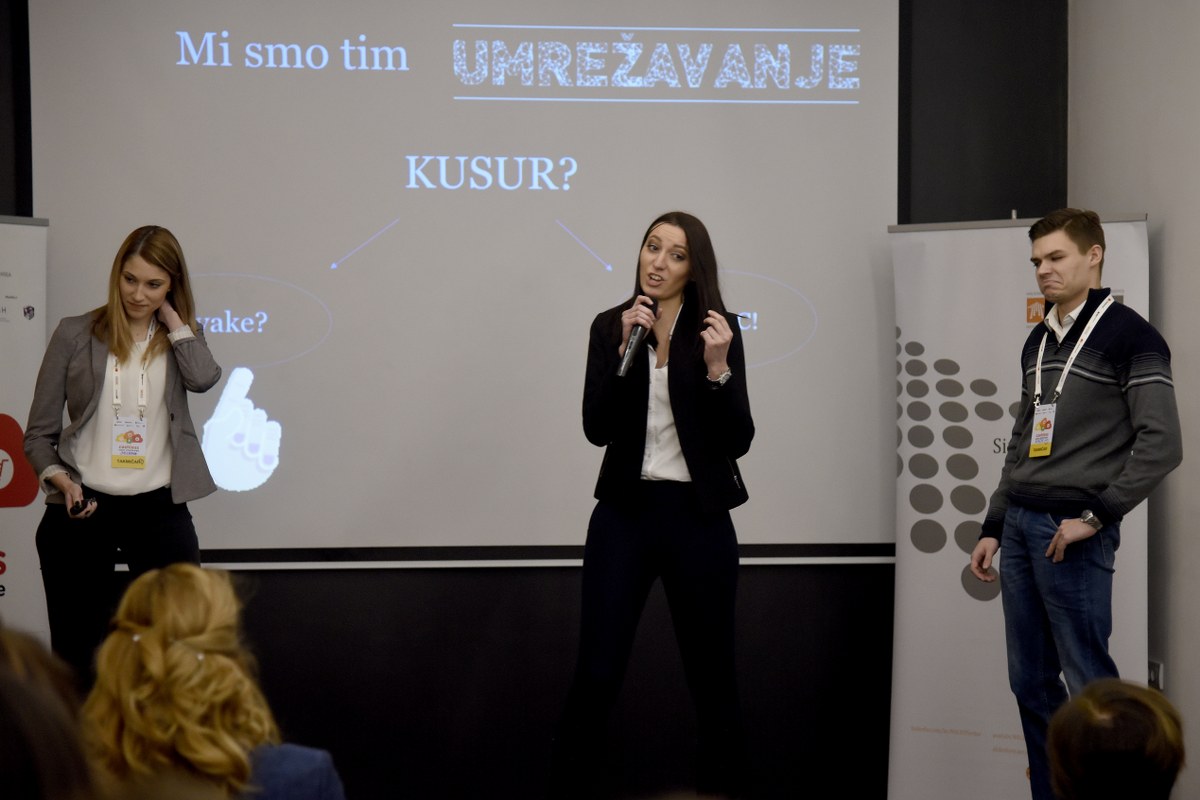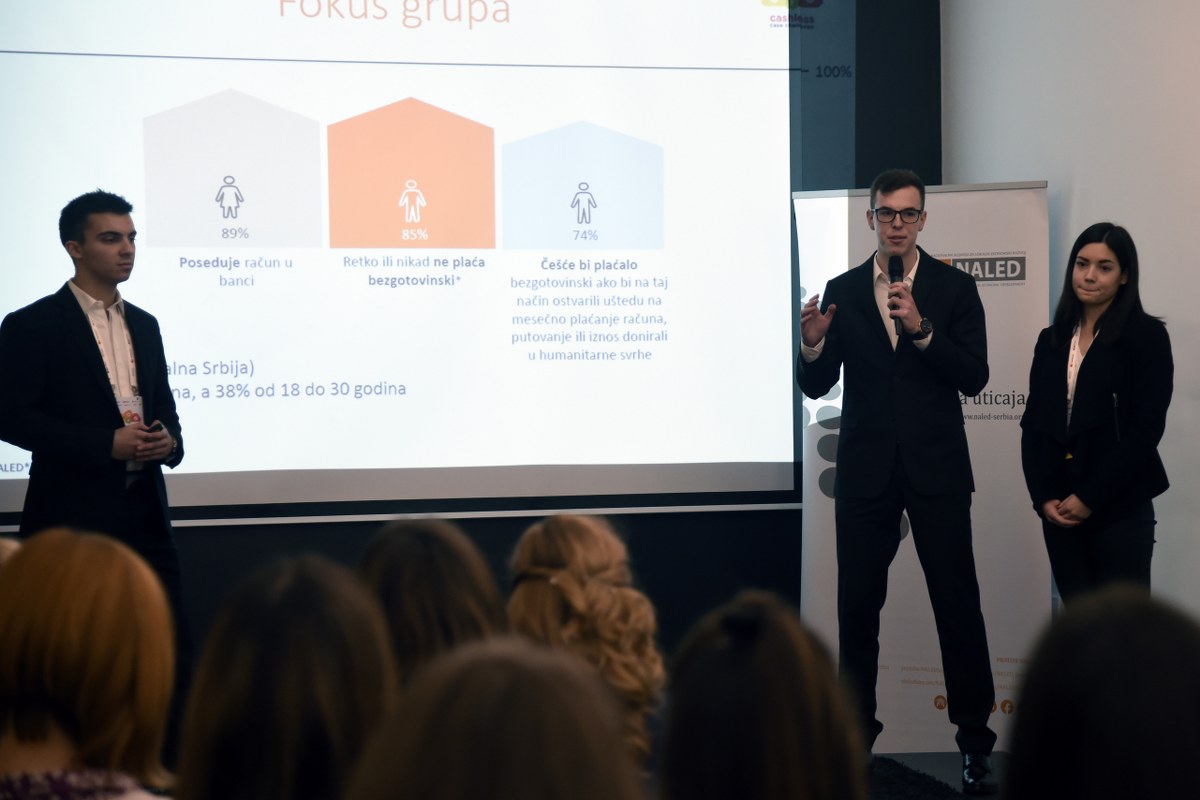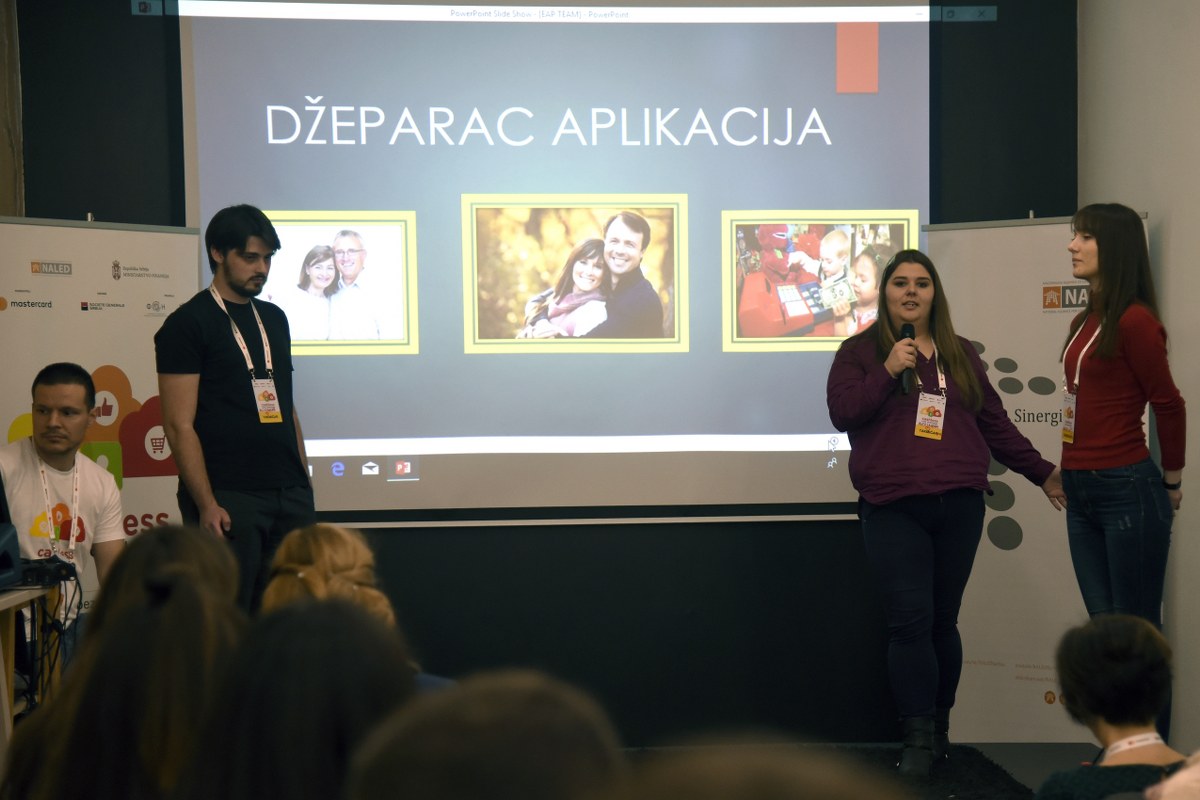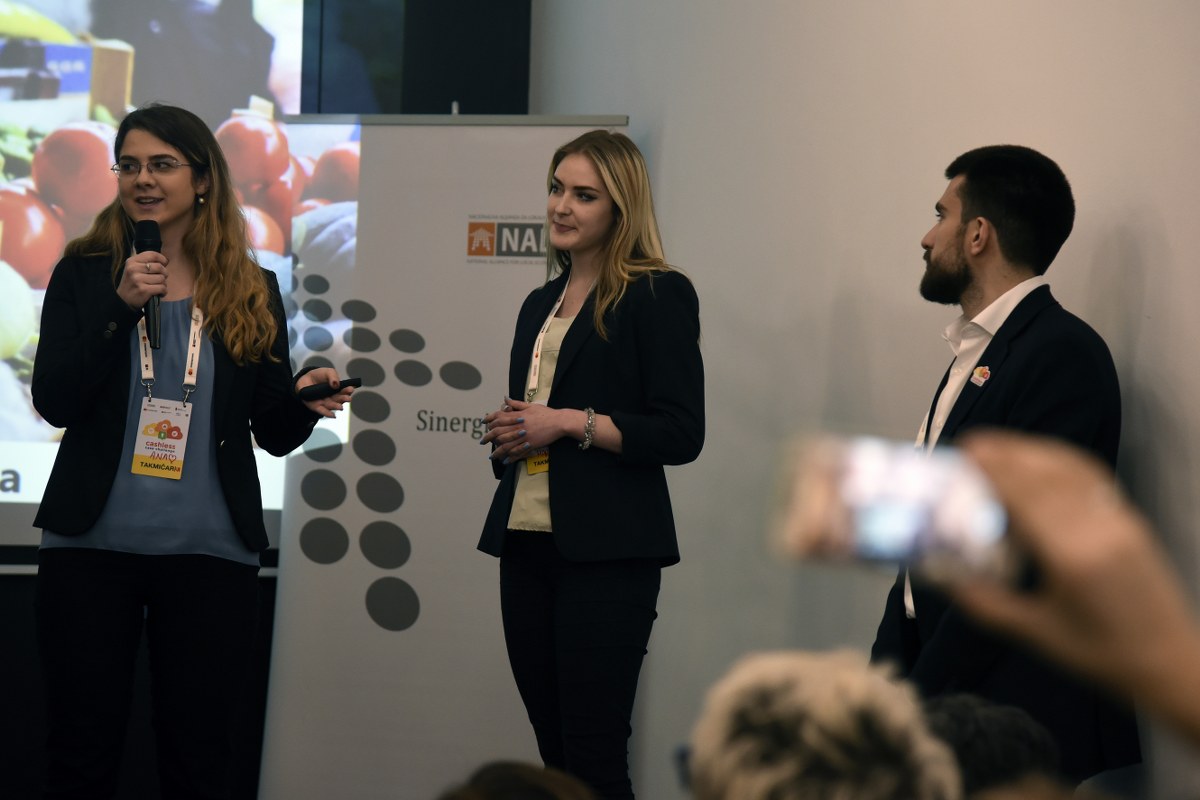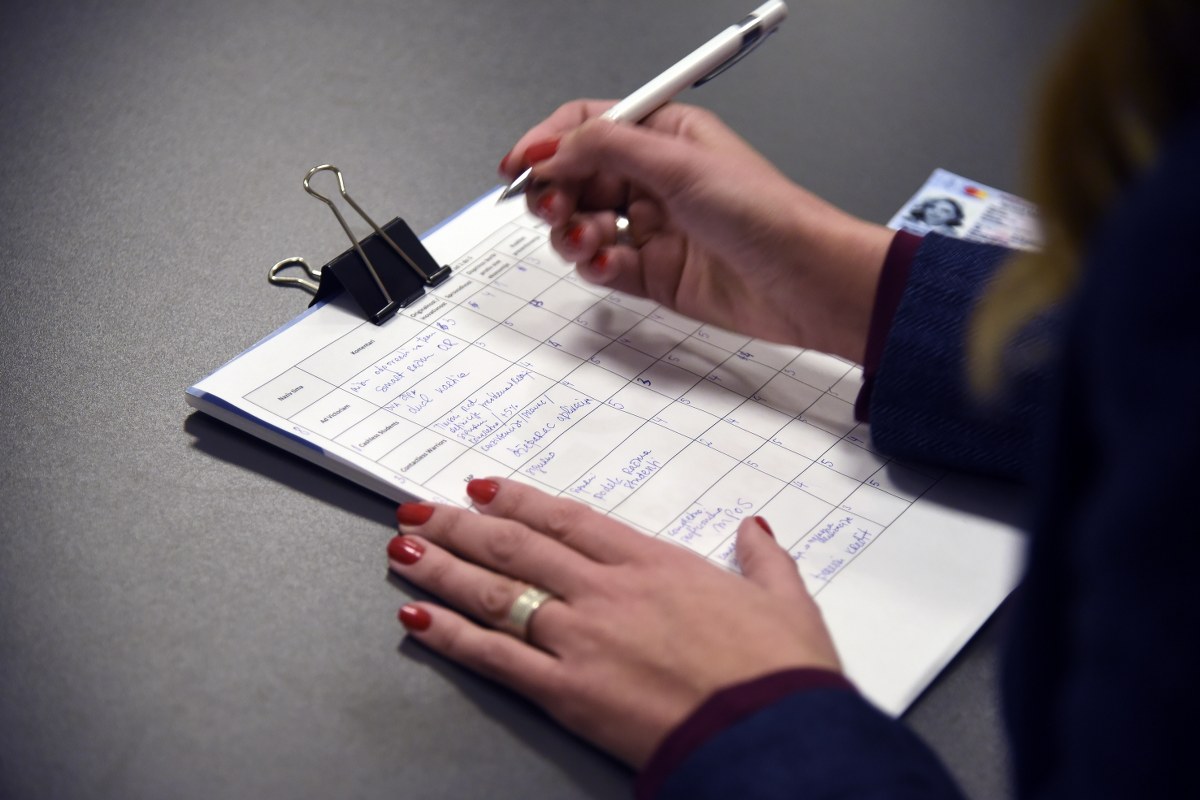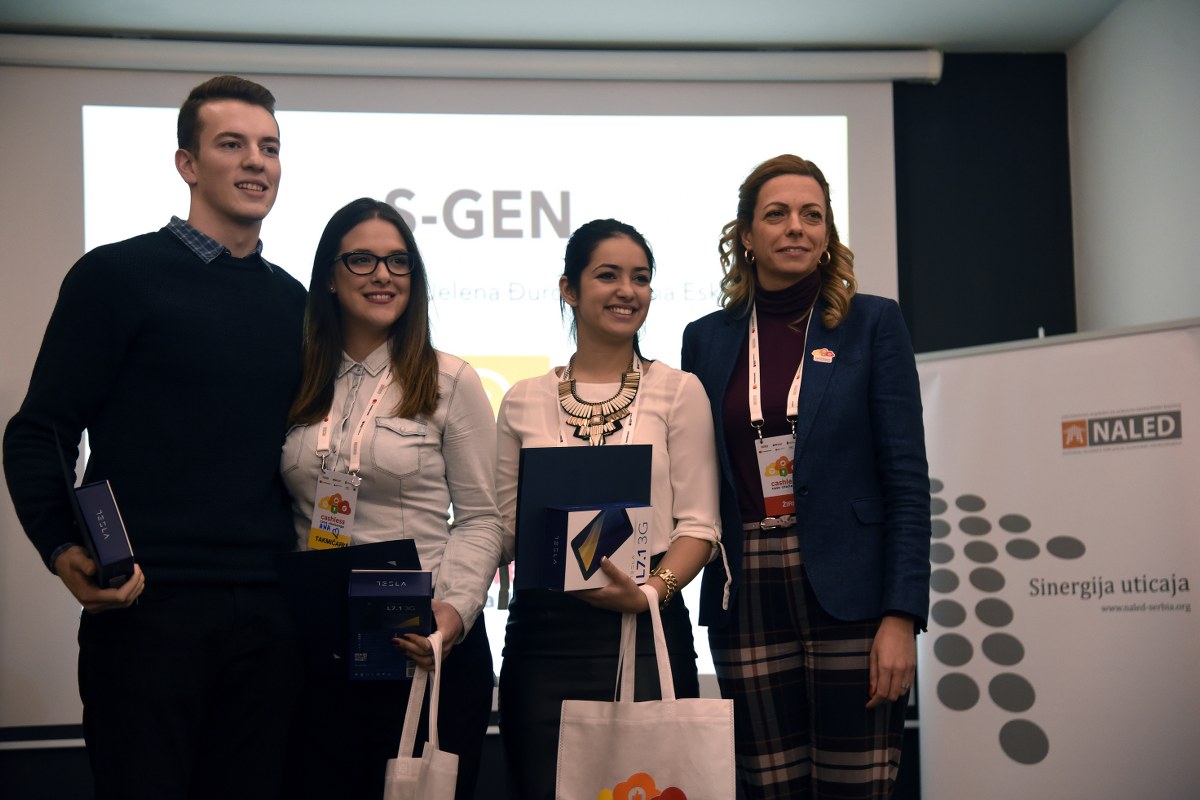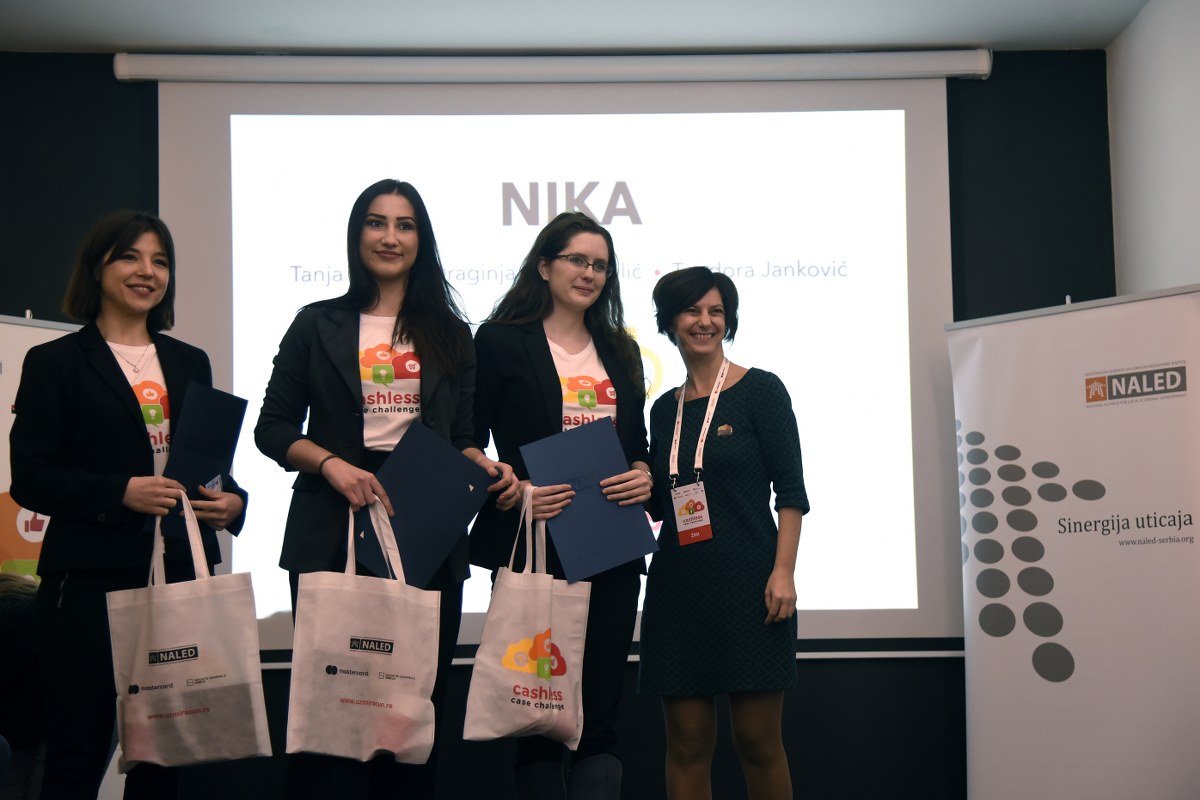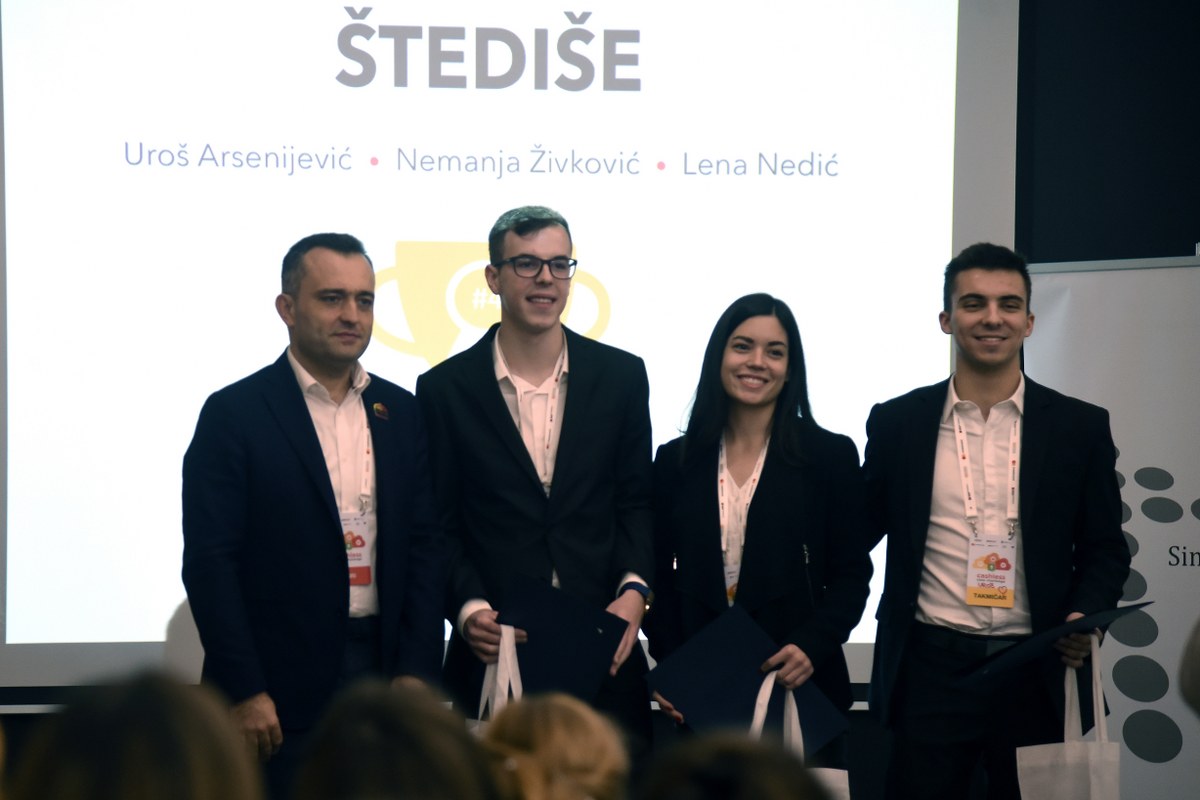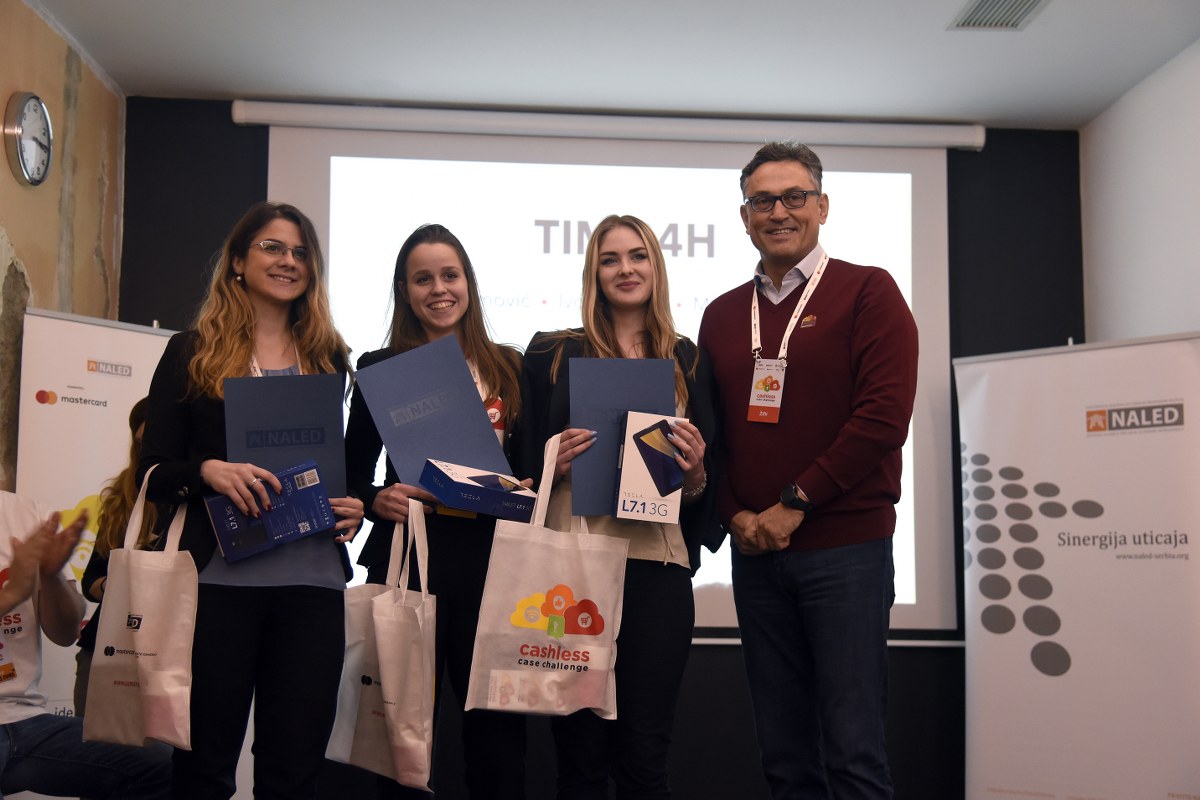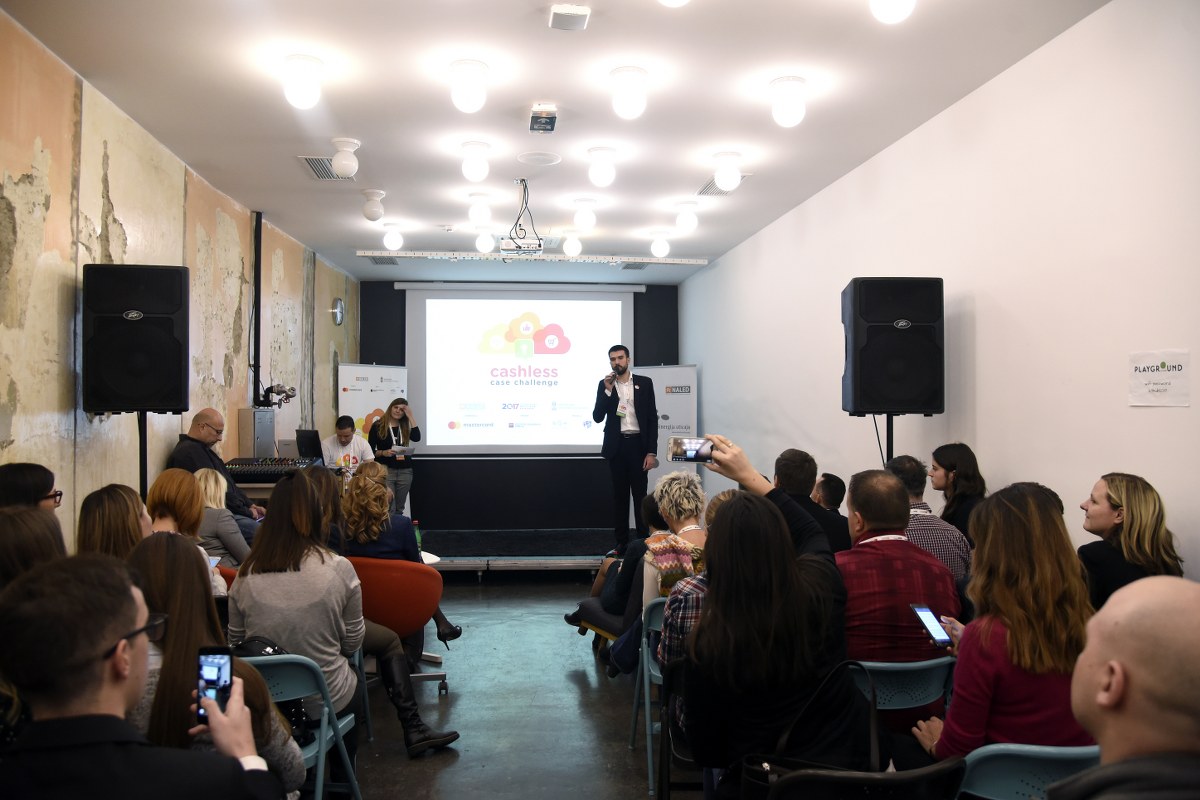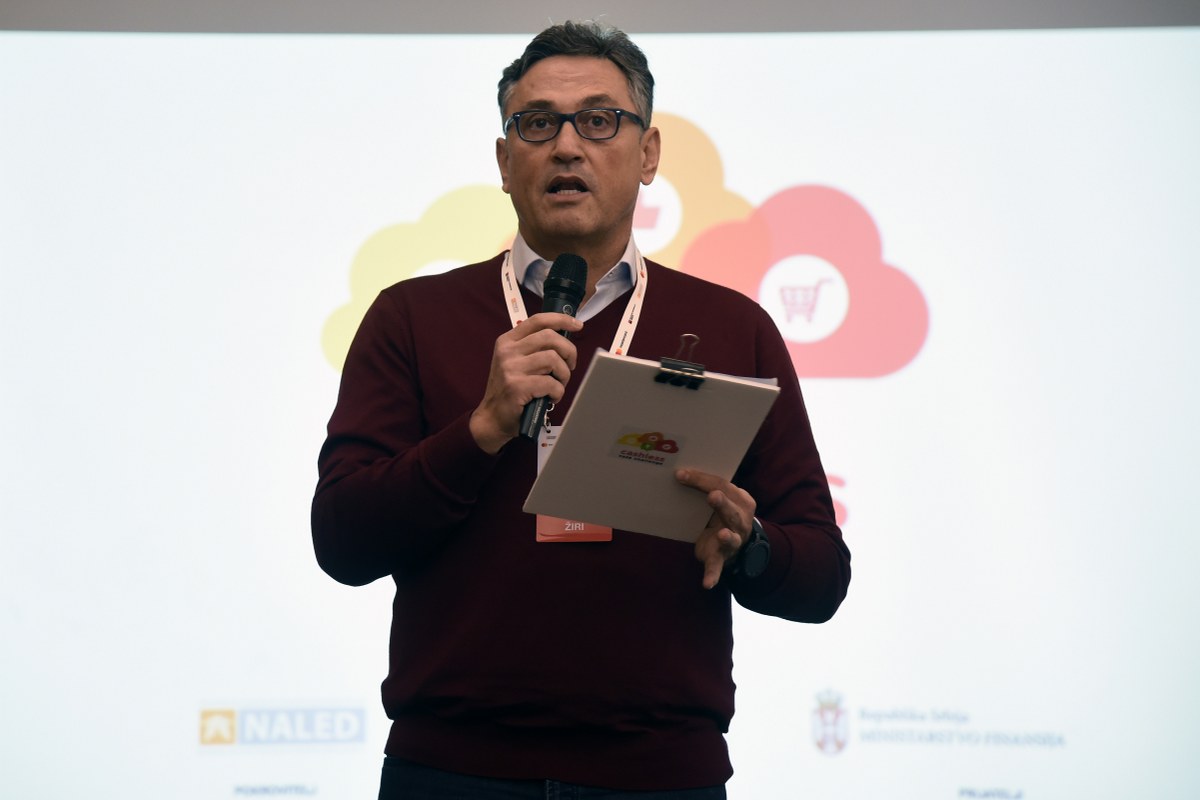Changing Citizens’ Consumer Habits and New Technologies as the Best Way Path to a Cashless Society
The development of a cashless society and countering shadow economy should be based on incentivizing citizens to make electronic payments, receive cashback through loyalty programs, as well as the state’s help in expanding the network of digital counters for receiving e-payments. In the final round of students’ competition Cashless Case Challenge 2017, the winning idea highlighted the change in consumer habits instead of major regulatory changes.
Students of the Faculty for Organizational Sciences of Belgrade, gathered in the Contactless warriors team – Marija Demirović, Jelena Popović and Aleksandar Đukanov, proposed that payment methods should not only include cards or mobile phones, but all sorts of gadgets including smart watches and bracelets that would be connected to accounts via new tech. Significant costs could be cut and direct benefits of cashless payments can be seen by using programs for accumulating points, while the state would encourage the opening of digital counters in places where they do not yet exist – bus stations, faculties…
"The idea proposed by the Contactless warriors team was evaluated as the best since it meets all criteria. It is wide-encompassing, plausible and at the same time contributes to a reduction in paper cash flow and shadow economy, and particularly to financial inclusion of youth " – said the expert competition jury during the finals held in ICT Hub – Playground in Belgrade.
Cashless Case Challenge 2017 was part of an educational campaign in the Year of Countering Shadow Economy. The organizers of competition for the best student ideas aimed at developing a cashless society are the Ministry of Finance and NALED, with the support of Mastercard and in partnership with the Societe Generale bank, Faculty of Organization Sciences and student organization Case Study Club.
"All proposals received as part of the Cashless Case Challenge demonstrate that participants have a good understanding of the local financial market and the impact of technology on establishing a cashless society. A particularly positive signal is the fact that student projects cover areas that have already been distinguished by the financial and business sector as key areas for development, such as a greater level of POS terminals among retailers, but also the presence of fresh ideas based on modern technology. With this in mind, on behalf of Mastercard, I would like to say that we are very pleased that these young, future decision-makers will join the development of a cashless society in Serbia" – said Jelena Ristić, Director for the Serbia, Montenegro and Bosnia & Herzegovina markets in Mastercard.
The second place was given to team S-gen of Belgrade’s Faculty of Economics whose interesting application is geared towards the student population, allowing them to digitally exchange and split checks in a café. The third place went to team 24h from the Faculty of Organizational Sciences and their idea of introducing eCard readers in green markets that are cheaper, more mobile and do not have to be connected to a terminal, the procurement of which would be financed by cities of the state.
"Incentives for cashless payments are an important part of the National Program for Countering Shadow Economy since it is possible to register e-transactions and make them more visible for tax administration even when receipts are not issued. Students have shown a high level of awareness of shadow economy and its negative impact on citizens and businesses, and in particular the possibilities for resolving this issue with new tech. We received a series of quality ideas, such as the introduction of POS terminals at government institution counters, development of QR code payments, introduction of eReaders as a competition for POS terminals and the development of various mobile apps for e-payments" – said Goran Pitić, President of Societe Generale bank’s Executive Board and President of NALED’s Fair Competition Alliance.
From 6 November to 5 December, 16 three-person teams from nine different faculties across Serbia registered for the Challenge. The main prize for the first placed team is paid 6-month internships for each member at the Mastercard company, Societe Generale bank and NALED. Prizes for all members of the top three teams include tablets, promotional and other gifts, with the prize fund including the promotion of five of the best team projects on the uzmiracun.rs website.

